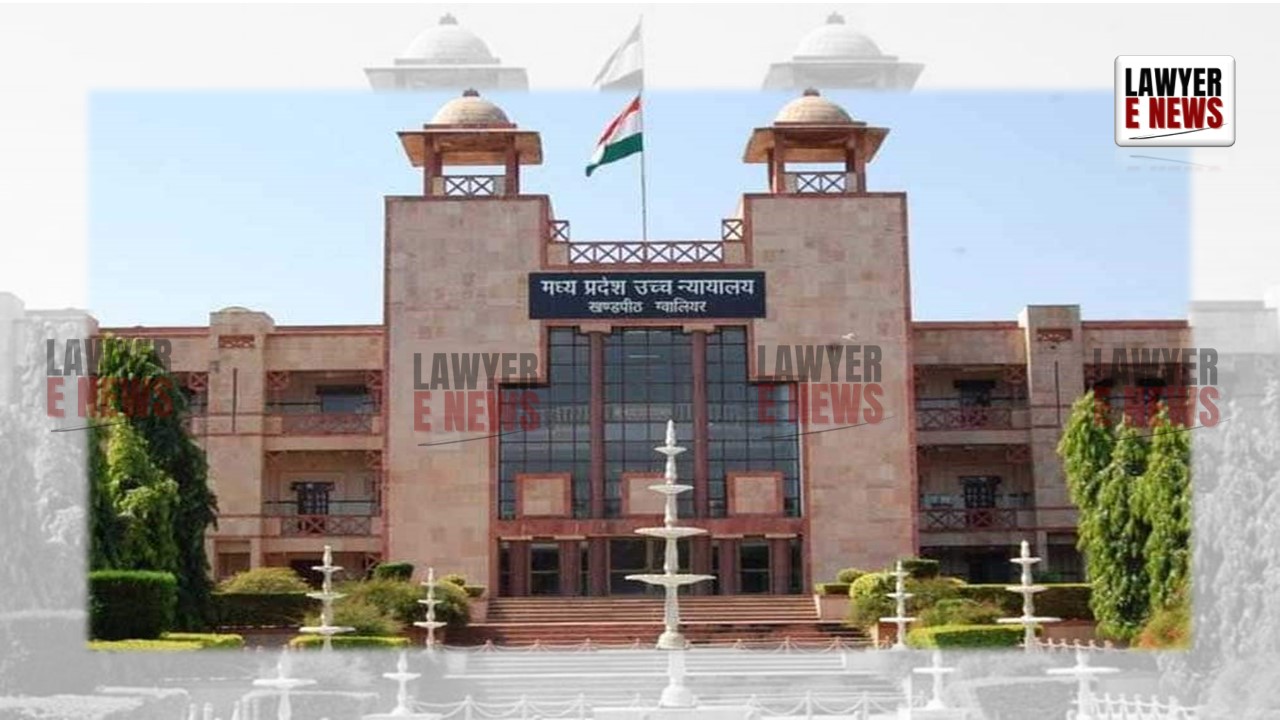-
by Admin
15 February 2026 5:35 AM



Madhya Pradesh High Court, in a decision rendered by Justices Vivek Rusia and Binod Kumar Dwivedi, dismissed a writ appeal filed by UltraTech Cement Ltd. challenging the retirement age of 60 for its workers, as mandated by the Madhya Pradesh Industrial Employment (Standing Orders) Act, 1961. The Court held that the state law governing employment conditions, including retirement age, applied to the cement industry in Madhya Pradesh despite the company's arguments that the Central Government’s Industrial Employment (Standing Orders) Act, 1946 (CG Act) should govern the matter. The Court also granted full back wages to workers who were wrongfully retired at 58 instead of 60.
UltraTech Cement Ltd., through its unit Vikram Cement Works in Madhya Pradesh, challenged the applicability of the Madhya Pradesh Industrial Employment (Standing Orders) Act, 1961 (M.P. Act), which had raised the retirement age for workers from 58 to 60 years. The company argued that as a cement manufacturer—a “controlled industry” under the Central Government—the company should be governed by the Central Government’s Industrial Employment (Standing Orders) Act, 1946, which allows for bipartite settlements that had fixed the retirement age at 58.
The dispute arose when workers challenged the company’s practice of retiring employees at 58, demanding the statutory increase in the retirement age to 60, as prescribed by the M.P. Act. The Industrial Court ruled in favor of the workers, and UltraTech Cement appealed the decision.
The primary legal issue was whether the Central or State Government’s law governed the conditions of employment, specifically the retirement age, for workers in the cement industry. UltraTech Cement argued that the Central Government had control over the cement industry and, therefore, its laws, including bipartite settlements, should override the M.P. Act. They also contended that a previously signed settlement with the workers’ union fixed the retirement age at 58.
The Court observed that while the Central Government does indeed control the cement industry under the Industries (Development and Regulation) Act, 1951, it had delegated certain powers to the State Government under the Industrial Disputes Act, 1947. As a result, the M.P. Act applied to employment conditions in the state, including the retirement age of workers in the cement industry.
"The State Government has authority due to the delegation of powers by the Central Government under the Industrial Disputes Act, and the industries in Madhya Pradesh, including cement, are governed by the M.P. Act regarding employment conditions including retirement age." [Para 15]
Additionally, the Court rejected UltraTech’s reliance on the bipartite settlement, stating that statutory provisions that are more beneficial to the workers override collective settlements:
"The retirement age of 60 years under the M.P. Act is enforceable despite contrary settlement agreements." [Para 18]
Justice Vivek Rusia emphasized that the retirement age of 60 years, as mandated by the M.P. Act, applied to both mine and factory workers employed by UltraTech Cement’s Vikram Cement unit. The Court rejected the company's argument that its limestone mines and cement plant should be governed by different laws, stating:
"The M.P. Act applies uniformly to both mine and factory workers in this context." [Para 19]
Furthermore, the Court addressed the issue of back wages for workers who had been wrongfully retired at the age of 58. Initially, the Industrial Court had awarded only 50% of the back wages for the two years these workers would have continued working. However, the High Court increased this award, holding that since the workers were entitled to remain in employment until they reached 60, they deserved full back wages:
"Workmen entitled to 100% of two years' salary, and related writ petitions allowed." [Para 21]
The Madhya Pradesh High Court dismissed UltraTech Cement’s writ appeal and upheld the order of the Industrial Court, which set the retirement age at 60 years for cement workers under the M.P. Act. The Court further granted full back wages to the workers who were wrongfully retired at 58. This ruling reinforces the principle that statutory provisions providing greater benefits to workers take precedence over conflicting contractual agreements or settlements.
Date of Decision: September 24, 2024
UltraTech Cement Ltd. v. Additional Labour Commissioner and Other
